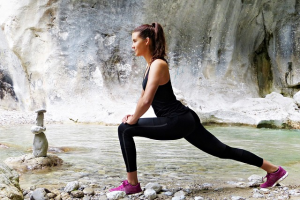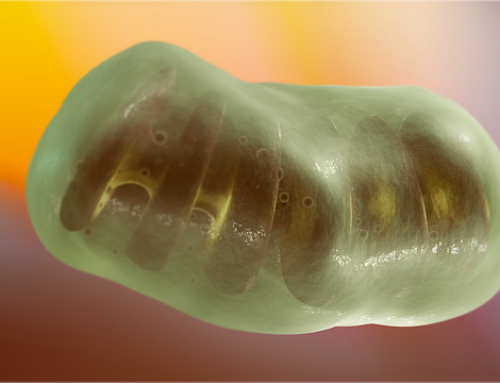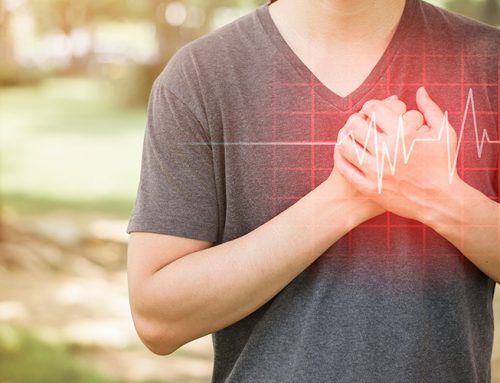
Coenzyme Q10 supplementation and exercise confer significant heart health benefits and anti-ageing benefits. The exercise can be aerobic exercise or strength training or both. The Coenzyme Q10 supplement you choose should be a supplement with well-documented absorption and efficacy.
The biggest difference in elderly (70+) men and women still living at home and still relatively healthy is the extent to which they exercise. Among elderly adults of the same socioeconomic status, nutrition and lifestyle do not vary much. Exercise levels do vary considerably.
With the variations in exercise level come variations in ageing. The question is, what is the role of Coenzyme Q10 status in the elderly and the rate at which they age?
The differences in ageing – manifested in differences in functional capacity, exercise status, and body weight — are connected to Coenzyme Q10 plasma levels and to Coenzyme Q10/cholesterol ratios in plasma.
A recent Spanish research study has shown that exercise, both aerobic exercise and strength exercise, is associated with increased levels of total Coenzyme Q10 and increased Coenzyme Q10/cholesterol ratio in plasma. In addition, the two forms of exercise are associated with decreased levels of a bio-marker for oxidative stress [Del Pozo-Cruz].
Coenzyme Q10 supplementation and heart health
The Spanish study has shown that the highest levels of plasma Coenzyme Q10 are positively associated with the highest levels of cardiovascular fitness in elderly home-living individuals [Del Pozo-Cruz]. These results are consistent with the results of the Swedish research study of the beneficial heart health effects of daily supplementation of elderly citizens with 200 milligrams of Coenzyme Q10 and 200 micrograms of selenium-enriched yeast [Alehagen].
In the Spanish study, the positive relationship between plasma Coenzyme Q10 levels and cardiovascular fitness was especially strong in women. [Del Pozo-Cruz].
Coenzyme Q10 and oxidative stress and ageing
Ageing is a complex process involving the interplay of many different factors. Ageing has serious consequences:
- earlier loss of physiological function
- earlier death
The free radical theory of ageing suggests that one of the underlying mechanisms of ageing is the accumulation of oxidative damage to cell DNA, cell membranes, and cell proteins. Ironically, free radicals are generated as a natural by-product of our metabolic processes involving oxygen, and free radicals do play a constructive role as biological signaling molecules and as mediators of the effects of exercise.
However, excesses of free radicals cause cell damage that have implications for ageing and for the degenerative diseases associated with ageing:
- cancer
- cardiovascular disease
- chronic low-grade inflammation
- diabetes
- neurodegenerative diseases (Parkinson’s and Alzheimer’s)
Free radical theory of ageing and Coenzyme Q10
The free radical theory of ageing suggests that it is the reduced expression of endogenous antioxidants such as Coenzyme Q10 that leads to an imbalance between the numbers of free radicals and the numbers of antioxidants. Given that our bodies produce less and less Coenzyme Q10 as we age, we need a well-formulated daily Coenzyme Q10 supplement.
Note: Ageing is undoubtedly a multi-factorial process, and we should not consider any one cause of ageing as explaining the entire process.
Exercise may induce hormone effects that lead to increases in our bodies’ synthesis of Coenzyme Q10, but this possible connection has not been proven. Moreover, it is doubtful that an increase in exercise-induced Coenzyme Q10 bio-synthesis can make up the deficit caused by age-related declines in Coenzyme Q10 bio-synthesis.
The daily Coenzyme Q10 supplement is absolutely necessary. It belongs right at the top of our list of nutritional supplements.
Faster ageing and lower Coenzyme Q10 levels
The causes and mechanisms of ageing are still controversial. But, faster ageing is associated with the following factors:
- Low Coenzyme Q10 levels
- High body mass index (BMI) levels
- High levels of lipid peroxides
- Sedentary daily life
Physical activity and Coenzyme Q10
Exercise – physical activity – may be a two-edged sword. On the one hand, exercise may cause the increased generation of harmful free radicals.
On the other hand, exercise may enhance antioxidant capacity and thus delay or prevent ageing-related disease processes.
And, let’s not forget, the opposite of exercise – sedentary living and high body mass index – is clearly associated with increased oxidative damage. In the end, we conclude that we cannot afford not to exercise as we get older just as we cannot afford to gamble on an undocumented Coenzyme Q10 supplement.
Physical activity – exercise – is associated with the following health parameters:
- Decreased arterial stiffness
- Improved endothelial function
- Improved metabolic levels
- Reduced body weight
Definition: the endothelium is made up of a single layer of semi-permeable cells that line the inside of the blood vessels. The endothelial cells regulate the passage back and forward of fluids, gases, nutrients, and waste materials between the blood and the tissues. The endothelial cells regulate the constriction and dilation of the blood vessels. Damage to the endothelial cells will trigger an inflammatory response, which is, itself, one of the first events in the development of atherosclerosis (the forming of plaques on the inner lining of the arteries).
Summary: what do we know about Coenzyme Q10 supplementation?
We do not know of any nutrients or hormones that will increase Coenzyme bio-synthesis as we get older. Consequently, a daily Coenzyme Q10 supplement – preferably 100 milligrams taken twice daily with meals – is necessary as we get older. Coenzyme Q10 is the essential bio-nutrient that serves three important functions in the body:
- Cellular bio-energetics (to produce ATP)
- Antioxidant role (to protect against harmful free radicals)
- Endothelial function (to protect the blood vessels against atherosclerosis)
Research studies have shown that maintaining optimal levels of Coenzyme Q10 via supplementation has positive protective effects:
- against the development and progression of cardiovascular disease [Alehagen; Mortensen]
- against the development of endothelial dysfunction in type-2 diabetes [Littarru 2011]
Read our key article about CoQ10 and cardiovascular health in elderly people
Sources
Alehagen, U., Johansson, P., Björnstedt, M., Rosén, A., & Dahlström, U. (2013). Cardiovascular mortality and N-terminal-proBNP reduced after combined selenium and coenzyme Q10 supplementation: a 5-year prospective randomized double-blind placebo-controlled trial among elderly Swedish citizens. International Journal of Cardiology, 167(5), 1860-1866.
Del Pozo-Cruz, J., Rodríguez-Bies, E., Navas-Enamorado, I., Del Pozo-Cruz, B., Navas, P., & López-Lluch, G. (2014). Relationship between functional capacity and body mass index with plasma coenzyme Q10 and oxidative damage in community-dwelling elderly-people. Experimental Gerontology, 5246-54.
Littarru, G. P., & Tiano, L. (2007). Bioenergetic and antioxidant properties of coenzyme Q10: recent developments. Molecular Biotechnology, 37(1), 31-37.
Littarru, G. P., Tiano, L., Belardinelli, R., & Watts, G. F. (2011). Coenzyme Q(10) , endothelial function, and cardiovascular disease. Biofactors (Oxford, England), 37(5), 366-373.
Mortensen, S. A., Rosenfeldt, F., Kumar, A., Dolliner, P., Filipiak, K. J., Pella, D., & … Littarru, G. P. (2014). The effect of coenzyme Q10 on morbidity and mortality in chronic heart failure: results from Q-SYMBIO: a randomized double-blind trial. JACC. Heart Failure, 2(6), 641-649.
Disclaimer: The information presented in this review article is not intended as medical advice and should not be used as such.








Leave A Comment